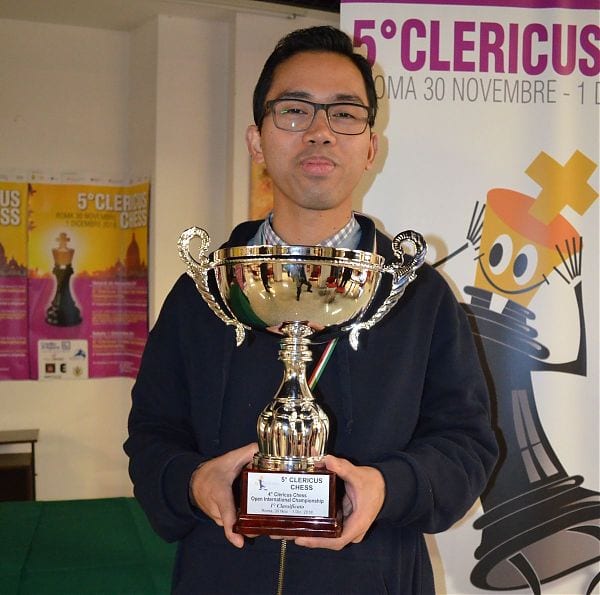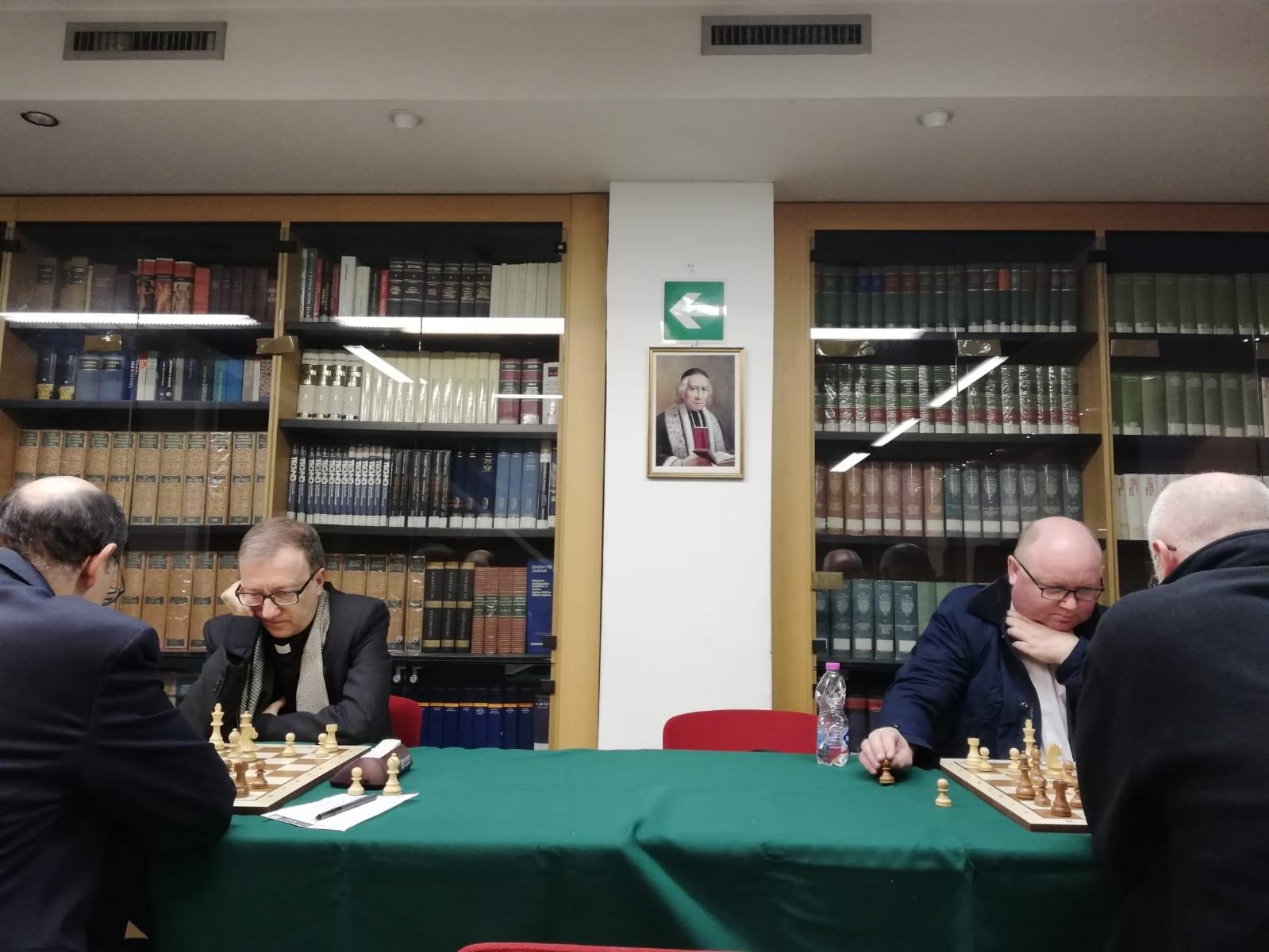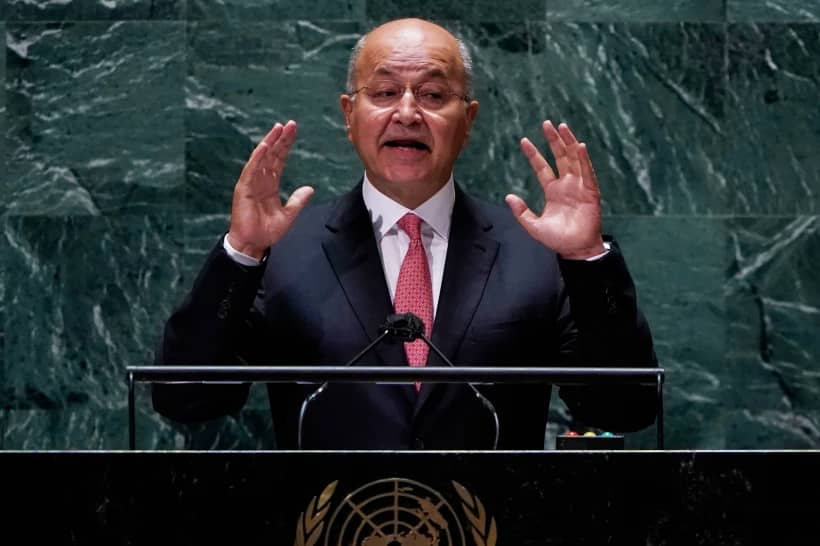ROME – It took a while for Franciscan Father Gaetano Sulit Froilan to realize he had lost the battle for the Italian championship at Rome’s celebrated “Clericus Chess” tournament. His opponent had moved his pieces stealthily, and, by the time he realized it was checkmate, it was already too late.
“I didn’t see that tactic coming,” he later told Crux.
As fate (or providence) would have it, though, Sulit didn’t have to wait long for redemption.
When he hopped on a train from Trieste to Rome for the fifth edition of Clericus Chess, a tournament open to ministers, deacons and priests that took place in Rome Nov. 30 – Dec. 1, he promised himself he wouldn’t go down without a fight.
“I told myself that at least this time I would like to win this tournament,” he said, “give it my best.”
Originally from the Philippines, the Franciscan Friar of the Immaculate has been living in Italy for the past 15 years. His passion for chess began when he was in middle school, and he’s carried it with him across continents and life experiences.
“I’m a little shy,” he said, his braces barely visible under a timid smile, but chess “allows some of my aggression to emerge,” he laughed.
Online he calls himself “LeRoiBlanc,” French for “White King,” and competes against players from all around the world. But opportunities for tournaments are rare, and this year’s edition of Clericus Chess was his chance to prove himself outside of the digital realm.
“They say that chess is not a violent game,” he said, but “the battle takes place on the chessboard between two opponents who are trying to win in those 64 chess boxes, and one tries to have the advantage over the enemy of course.”
Sulit’s enemy this time was a formidable opponent.
Father Gennaro Cicchese, a philosophy professor at Rome’s Pontifical Lateran University, had won the Clericus Chess tournament in 2014. In 2016, his last-minute moves dazzled his opponents in the final minutes, leaving many players tense about facing him again.
With a cozy scarf wrapped around his neck and black framed glasses balanced on his nose, Cicchesi showed he meant business early on, beating his enemies with his now-renowned preference for the element of surprise.
In the library of the institute of Saint Mary of the Marianists on Nov. 30, surrounded by old tomes and under unforgiving neon lights, ten priests, friars and seminarians were bent over the chessboards in pairs, paying homage to the complex and deeply rooted connection between Catholicism and Chess.
One of the first rounds saw Cicchese face Father Darius Dražec, originally from Pelplin, near Gdańsk in Poland, and rector of the Pontifical Polish College in Rome.
Cicchese had made the mistake of showing his intentions of taking out his opponent’s queen, leading Dražec into a defensive stance. Things got worse when the Italian insisted on his offensive, losing a pawn and leaving him at a disadvantage.
“Here talent doesn’t count,” Cicchese later told Crux. “Beyond talent and technical knowledge, what matters is the determination. You need to want to win from the beginning until the end. Never Give up. It’s the strength of champions.”
It turned out Cicchese had an unexpected ally: time. Each player had no longer than 30 minutes at their disposal, and a quick look at the chess clock showed that his opponent was down to his last seconds.
Dražec’s attempts to win back the time were wasted, and the last minutes were payed with the “tic-toc” sounding a fast-paced death march. Cicchese had won.
“I don’t ask God to let me win,” Dražec told Crux after his loss, “perhaps I ask him to give me the right concentration, so that I may understand what it means to play chess.”
The Polish priest learned chess at ten, when his father and grandfather would play against each other in the evening after a long day plowing the field. Watching those matches inspired a deep passion for the game in Dražec, who describes it as “a meditation, poetry, an adventure.”
He finds the connection between his faith and his passion for chess in the possibility of finding grace even in the most untenable situations.
“Sometimes it appears that our situation is already lost,” he said, “instead it can contain salvation, which one can find only by delving deeper into the situation.”
Such turns at the event continued for the entire day, with only the intermittent sound of the radiator breaking the otherwise religious silence. From the corner of the room, a bronze bust of Italian author Dante Alighieri watched the room with a gaze of seeming disappointment.
The late medieval writer from Florence had a well-known aversion to chess. In his famed Divine Comedy, Dante even placed Saint Pier Damiani, former cardinal of Ostia who banned the “dishonest, absurd and libidinous” game of chess in the golden circles of heaven.

In all honesty, the relationship between Catholicism and chess has not always been positive. The game was often associated with dice and gambling, and it was not rare in the early Renaissance for clerics to urge faithful to burn their chess tables. In 1496 and 1497, the fiery preacher Girolamo Savonarola had Florentine citizens erect a 45-foot-tall pyre of chess tables for a bonfire of the vanities.
But Florence was also where chess was rehabilitated, and the bond between Catholicism and the game was forever established. Giovanni de’Medici, son of Lorenzo il Magnifico, was known as a true chess aficionado, a passion he carried with him even after he became pope Leo X in 1513.
It was Leo’s promotion of the game during his eight-year pontificate that paved the way for Saint Theresa of Avila to praise chess in her works and later become the patron saint of chess. Francis De Sales furthered the bond by declaring chess a legitimate game in his 1608 “Introduction to the Devout Life.”
In a chapter dedicated to entertainment, De Sales warned that “in chess one must only avoid excess,” because “one who plays for five or six hours at chess is completely devastated and his spirit exhausted once he gets up.”
It was during a midlife crisis that Cicchese picked up the game once more, discovering that he still had a knack for it. He prepared for Clericus Chess by watching world tournaments online. During the competition in Rome the priest played with evident gusto, tapping the chess clock energetically and occasionally smacking his lips after a good move.
“What I like a lot about this game is its esthetic aspect,” he said. “This game is so complicated, so filled with variations, of richness, of things, that it is infinite. Really, it is also a representation of God.”
What Sulit later called an “oversight” led him to lose against the unstoppable Italian priest during the finale Dec. 1. Cicchese thereby established himself as the Italian champion for the third consecutive time, but the International Cup was still up for grabs.
“Spiritual life, faith, is also made of ups and downs,” said the Franciscan Friar, “and in chess sometimes you win and sometimes you lose. The important thing is to continue the battle, like Saint Paul who fought for the faith until the end.”
Organizers described the finale as one of the “the most exciting” of the five, because it was “strongly fought and, until the last turn of the game, four were contending for the title of World Champion.”
During the last game, the “WhiteKing” faced a Polish opponent for a chance to crown his ambition to finally be number one. What began as a balanced play soon shifted when Sulit trapped his opponent.
He created a zugzwang situation, a German word that describes a circumstance in chess where the opponent is put at a disadvantage no matter his move, which will inevitably make him weaker. Eventually, the Filipino challenger won the crown.
In the picture showing him holding the long-awaited 5th Clericus Cup, Sulit looks as if he is about to burst with satisfaction. The “White King” could return to Trieste with a swollen chest of pride and the title of “champion,” which he’ll hold until the next edition in 2020.
“In chess, even when you have already lost because you have fewer pieces, you still have a chance to win if the other makes a mistake. You need to persevere,” he said, [because] “you never know if, by some luck, you’ll be allowed to win.”
Sulit’s reference to “luck” speaks to his humility, but watching the Church’s elite chess players grind away, it’s striking how often this talented Filipino master seems to get “lucky.”












